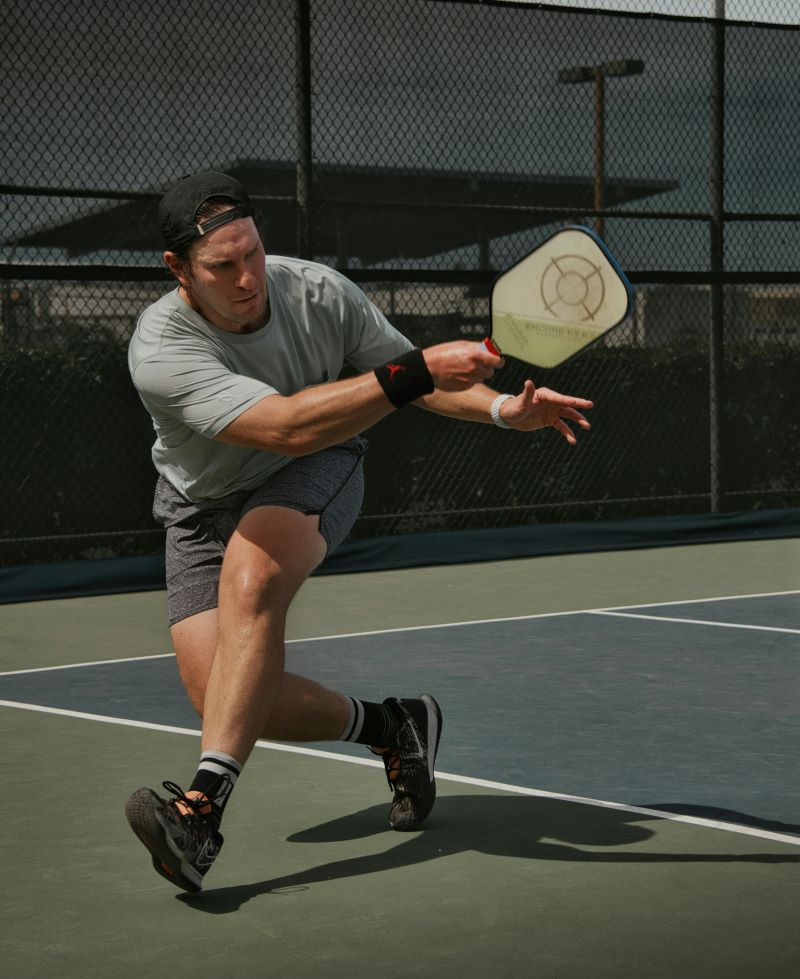When it comes to pickleball, durability and performance are crucial. Players rely on their equipment to withstand the wear and tear of high-intensity games, and ensuring that pickleball equipment welding is done correctly is essential to maintaining this durability. In this article, we’ll explore how to ensure that pickleball equipment, particularly the welded parts, can endure the physical stresses of constant use without deforming or breaking.
Why Durability Matters in Pickleball Equipment Welding
Pickleball is a sport that demands a lot from its equipment. The sport’s fast-paced nature and intense gameplay mean that paddles, nets, and posts are regularly subjected to hard hits, collisions, and even accidental drops. Without proper pickleball equipment welding, these items could quickly become damaged, leading to costly repairs or replacements.
To prevent this, high-quality welding is key. It ensures that the welded joints of the equipment can resist impact, prevent deformation, and maintain structural integrity, even under the most extreme conditions. Here’s how to ensure that pickleball equipment welding delivers the durability required.
1. Select the Right Materials for Welding
Choosing the right materials is the first step in achieving durable pickleball equipment welding. Stronger materials like stainless steel or aluminum alloys are essential for the frames and joints of pickleball equipment, as they offer both strength and resistance to corrosion. These materials are designed to handle stress without bending or breaking under pressure.
Stainless Steel: Known for its strength and corrosion resistance, stainless steel is a popular choice for pickleball equipment welding. It ensures that the equipment remains intact even in outdoor conditions.
Aluminum Alloys: While lightweight, aluminum alloys offer excellent durability and resistance to impacts, making them ideal for equipment that is frequently used in intense conditions.
2. Precision in the Welding Process
The welding process itself is crucial to the longevity of pickleball equipment welding. When the welding is done incorrectly, it can lead to weak points that are more prone to breaking or deforming. Precision in welding ensures that the joints are uniform, solid, and capable of handling repeated stress.
TIG Welding (Tungsten Inert Gas): This technique is known for its ability to produce precise, clean welds, making it ideal for pickleball equipment welding. TIG welding is particularly useful for materials like stainless steel and aluminum, ensuring strong and durable joints.
MIG Welding (Metal Inert Gas): MIG welding is faster and can be used for larger surfaces, making it ideal for pickleball equipment like posts or frames. It also creates a smooth finish, reducing the risk of weak points.
 3. Ensuring Impact Resistance
3. Ensuring Impact Resistance
One of the key challenges in pickleball equipment welding is ensuring that the equipment can withstand the impact of the ball, paddles, and other high-intensity forces. To achieve this, it's important to consider the following factors:
Reinforced Joints: Welded joints should be reinforced to distribute stress evenly across the frame. This helps to avoid any localized weakening that could lead to breakage during high-intensity use.
Heat Treatment: Post-welding heat treatment can enhance the toughness of the welds, reducing brittleness and increasing their ability to absorb impact without cracking.
Stress Testing: Before the equipment is sold or used in competitions, it's important to subject it to stress tests to simulate the intense forces it will experience. This ensures that the welding process has been done correctly and that the equipment can handle high-impact situations.
4. Custom Welding Solutions for Enhanced Durability
At Shangyu, we specialize in providing custom welding solutions for pickleball equipment. Our pickleball equipment welding services are designed to meet the specific needs of the sport, ensuring that your equipment is both durable and reliable. We work with a variety of materials and use advanced welding techniques to create products that stand up to the rigors of high-intensity play.
Tailored Designs: Whether you need custom welded posts or specialized frames, we offer designs that cater to your unique requirements.
Bulk Production: For manufacturers, we provide bulk welding solutions for large-scale production runs, ensuring that each piece of equipment meets our high standards for durability and strength.
5. Maintenance and Care to Prolong Durability
While proper welding can significantly extend the life of pickleball equipment, regular maintenance is also essential. To maintain the integrity of welded joints and keep your equipment in top condition, consider the following tips:
Regular Inspections: Check the welded areas for signs of stress or wear. If you notice any issues, it’s best to address them before they become major problems.
Cleanliness: Keep the equipment clean and free from debris that could cause damage over time. Corrosion from dirt or moisture can weaken the welds and shorten the lifespan of your equipment.
Storage: Proper storage can help prevent unnecessary stress on the equipment. Store pickleball equipment in a cool, dry place to avoid any environmental factors that could weaken the welded joints.
Conclusion: Durable Welding for Long-Lasting Equipment
Durability is key when it comes to pickleball equipment welding, especially when dealing with the high-impact stresses that come with the sport. By choosing the right materials, employing precise welding techniques, and testing the equipment for impact resistance, manufacturers can ensure that their equipment remains intact and functional for long-term use. At Shangyu, we specialize in providing top-quality welding services tailored to your needs, ensuring that your pickleball equipment is built to last. Whether for personal use or mass production, our custom solutions provide the durability and reliability you can trust.

